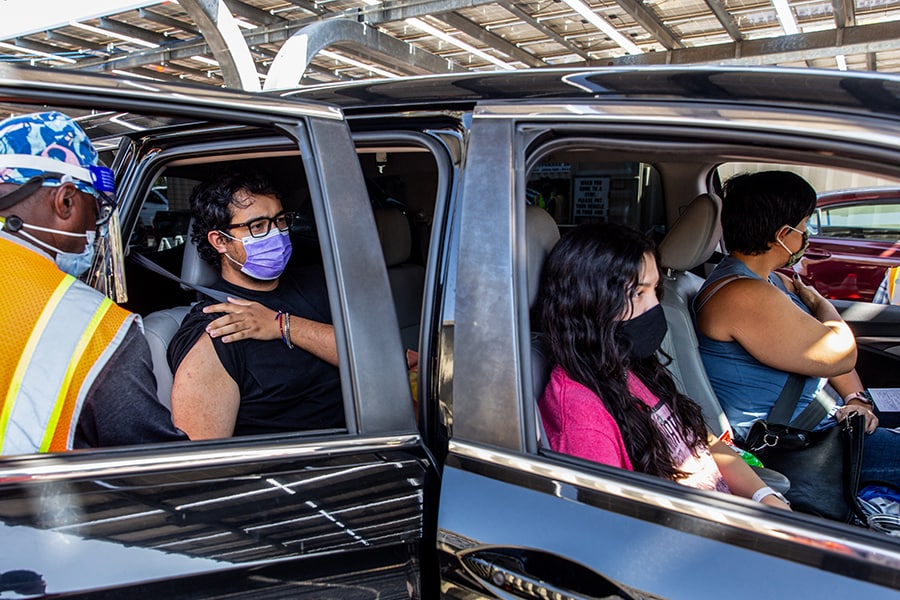
Taking 'extraordinary measures,' Biden backs suspending patents on vaccines
The Biden administration has come out in support of waiving intellectual property protections for coronavirus vaccines, siding with international efforts to bolster production amid concerns about vaccine access in developing nations
 A health care worker administers COVID-19 vaccines at California State University in Los Angeles, May 4, 2021. The Biden administration, siding with some world leaders over the U.S. pharmaceutical industry, came out in favor of waiving intellectual property protections for coronavirus vaccines; Image: Allison Zaucha/The New York Times
A health care worker administers COVID-19 vaccines at California State University in Los Angeles, May 4, 2021. The Biden administration, siding with some world leaders over the U.S. pharmaceutical industry, came out in favor of waiving intellectual property protections for coronavirus vaccines; Image: Allison Zaucha/The New York Times
WASHINGTON — The Biden administration came out on Wednesday in support of waiving intellectual property protections for coronavirus vaccines, siding with international efforts to bolster production amid concerns about vaccine access in developing nations.
The United States had been a major holdout at the World Trade Organization over a proposal to suspend some of the world economic body’s intellectual property protections, which could allow drugmakers across the globe access to the closely guarded trade secrets of how the viable vaccines have been made. But President Joe Biden had come under increasing pressure to throw his support behind the proposal, drafted by India and South Africa and backed by many congressional Democrats.
Katherine Tai, the United States trade representative, announced the administration’s position on Wednesday afternoon, as the pandemic continues to spiral in India and South America.
“This is a global health crisis, and the extraordinary circumstances of the COVID-19 pandemic call for extraordinary measures,” she said in a statement. “The administration believes strongly in intellectual property protections, but in service of ending this pandemic, supports the waiver of those protections for COVID-19 vaccines.”
Support from the White House is not a guarantee that a waiver will be adopted. The European Union has also been standing in the way, and changes to international intellectual property rules require unanimous agreement. Tai said the United States would participate in negotiations at the World Trade Organization over the matter, but that they would “take time given the consensus-based nature of the institution and the complexity of the issues involved.”
©2019 New York Times News Service




